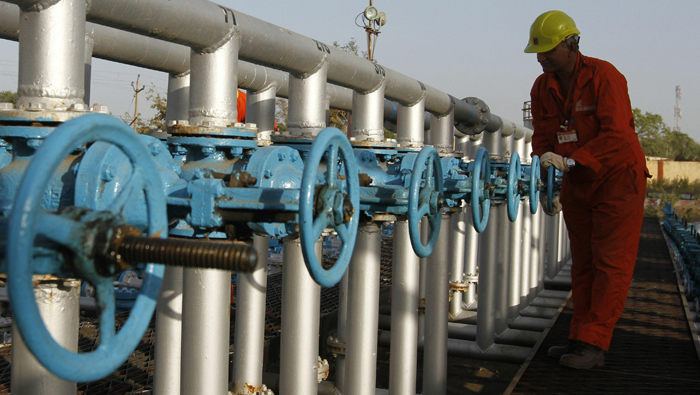
New Delhi: India’s state-owned oil explorer won’t let low crude prices clip its wings.
While the biggest oil crash in a generation has caused energy companies including Royal Dutch Shell and ConocoPhillips to cancel or delay about $400 billion in projects, New Delhi-based Oil & Natural Gas Corporation (ONGC) is adding a $5 billion development to its backlog.
ONGC’s counter-cyclical approach to investing is based on a fact and an assumption, chairman Dinesh Kumar Sarraf said in an interview in New Delhi on Tuesday. The fact: with other companies abandoning projects, costs will never be cheaper. The assumption: that same abandonment means prices will rise in coming years as growing demand overwhelms supply that’s fallen due to lack of investment.
“I don’t see any reason why we should be withholding investment now in such an environment where the cost of services and oil-field material is very low,” Sarraf said. “Our capital cost will be frozen forever,” while oil and gas prices will rise in the future, he said.
ONGC’s board on Monday approved $5.07 billion to develop the KG block in the Bay of Bengal off the east coast of India. The project, which is expected to be completed by June 2020, is targeting total production of at least 23.5 million metric tonnes of oil and 50.7 billion cubic metres of natural gas.
Development costs
The development would have cost $7 billion two years ago, Sarraf said. Rig rental costs have since fallen from $110,000 a day to less than $50,000 today with oil prices less than half what they were in the summer of 2014.
That collapse in crude, and a potential rebound in prices, informs the other half of ONGC’s investment bet. The oil and gas that the KG Block would produce won’t be sold for another three or four years. By then, Sarraf said, crude will probably recover to a level that makes the project profitable. PetroChina’s chairman last week said prices should gradually rise to about $60 to $80 a barrel in the five years to 2020.
The International Energy Agency has even warned that the spending cuts by producers increase the possibility of oil-security surprises in the “not-too-distant” future. Wood Mackenzie estimated in January that explorers had delayed projects worth $380 billion since prices started their slide in late 2014.
“The investments that we are making today won’t produce until next three years,” Sarraf said. “We presume that three years is quite a reasonable time frame for the prices to again go up significantly.”